Emotional Eating: Tips on How to Identify Your Triggers
Find out what emotional eating is and how to identify your triggers — so you can heal from its devastating impact forever!
Heads up! This post may contain affiliate links, which means I get a small commission if you make a purchase — at no extra cost to you. I only recommend products I love and trust! Read my full disclosure here.
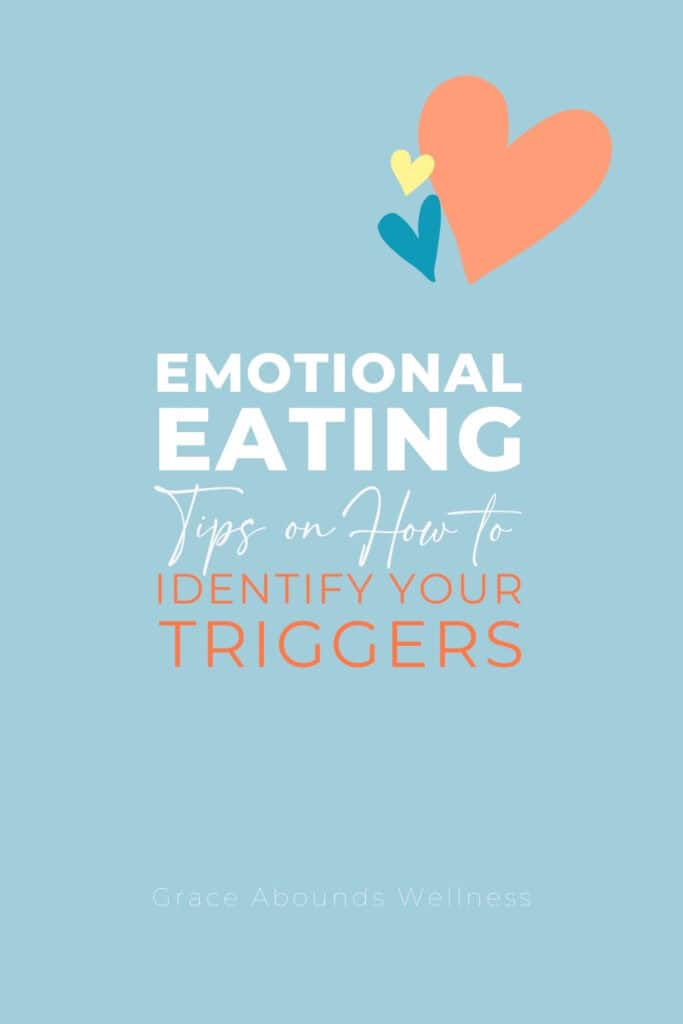
Emotional eating can be devastating… it can disrupt every aspect of your life and hold you back from being the amazing woman God designed you to be.
If you’re anything like me (and like most women), you probably turn to food for comfort when you’re feeling down. Whether you call it emotional eating, comfort eating, or stress eating, it’s a common coping mechanism for dealing with difficult emotions…
And while emotional eating might offer the temporary relief you need — turning to food for comfort will certainly not satisfy your deepest desires.
Actually…
Stress eating can cause you to feel even more stressed, guilty, and out of control.
If you’re struggling with emotional eating, there’s hope my beautiful friend!
Today, you’ll learn what emotional eating is, how to discern between physical hunger and emotional hunger, and how to identify YOUR triggers. Ready to stop those life-disrupting negative feelings associated with comfort eating and start feeling better today?
Let’s do this!
Why do I turn to food for comfort?
Raise your hand if you’ve ever found yourself eating when you’re not physically hungry…
🙋🏻♀️ 🙋🏻♀️ 🙋🏻♀️ 🙋🏻♀️ 🙋🏻♀️
(Don’t be shy — raise your hand with me.)
I understand if you’re too shy to admit this — because what normally happens is you’re stigmatized if you do.
But the truth is…
Emotional eating is more common than you think. All you need is that ONE THING to happen — an emotional trigger to set it off…
What are emotional eating triggers?
An emotional eating trigger is an urge that makes you impulsively reach for food to suppress negative emotions.
You can be triggered by a stressful situation, chronic stress, anger, fear, anxiety, sadness, boredom, major life events, the hassles of daily life, or even happiness!
Any of these can provoke a strong emotional reaction that leads you to indulge in mindless eating — sometimes even to the point of feeling physically sick…
So, while turning to food for comfort is pretty common — it can also be a sign of some deeper issues going on.
Maybe your trigger is…
- an unresolved matter from your past
- a relationship struggle
- a health issue
- financial hardship
- unforgiveness…
Your ‘why’ can be completely different from mine — but I have some good news for you…
1. You can learn what triggers you — your ‘WHY.’
2. With the right knowledge, support, and, most importantly, with God’s endless grace and lavish love — you can overcome emotional eating forever!
💖 Explore Related Posts 💖
- Learn How to Retrain / Renew Your Mind
- The Power of Grace: How to Overcome Self-Sabotage Through a Christian Perspective
- A Christian Perspective on Emotional Wellness
Emotional Eating As A Christian
Resolving your triggers as a Christian emotional eater…
If you’re anything like me, emotional eating has always been part of your life. Or maybe, like in my case, it was triggered by major life events (more about my story at the end…). Or maybe your food cravings creep up in seasons of higher stress levels…
No matter your situation — know this…
- Becoming aware of your emotional eating is the first step in overcoming it!
- You are a blessed daughter of the Most High King and He will see you through this journey.
Before we dive into how the Holy Spirit can help you identify your emotional eating triggers, let’s make sure you have a clear picture of what it really is and how it affects you.
Emotional Eating Questionnaire
Download this FREE quiz. Then take the quiz to find out if you are an emotional eater!
Understanding Emotional Eating
Anyone who knows me understands that I love to thoroughly research topics. Which is why I learn from the experts — to bring you well-researched insights from a Christian perspective…
This might not be the ‘funnest’ (is that a word?) part of this article — but stick with me…
Because when you TRULY understand it, you’re better equipped to start your journey to breaking free from emotional eating forever!
Remember, knowledge is power, and when combined with the power of God’s grace, you’re victory is guaranteed!
What Does Emotional Eating Mean?
According to the National Library of Medicine, emotional eating is defined as (over)eating in response to negative emotions like…
- chronic stress
- anxiety
- depression
- boredom
- and loneliness.
While it’s a common coping mechanism, it can become a problem if it leads you to overeat or binge eat.
So it’s important to discern the difference between physical hunger and emotional hunger…
Physical hunger is the body’s way of telling you that it needs nourishment.
Emotional hunger, on the other hand, is the mind’s way of using food to cope with negative emotions.
What is an Emotional Eater?
An emotional eater is someone who turns to food to cope with their overwhelming emotions.
Perhaps the underlying causes are a negative body image — divorce — health problems — money problems — or something that scientists don’t mention… spiritual wellness.
Spiritual wellness involves nurturing a deep connection with God, aligning your life with His word, and finding peace and purpose through faith in Christ.
As a Christian woman, turning to God can tremendously help you manage your emotions and needs. Which, in turn, can help you make food choices that benefit your body while honoring it and God.
What is an Emotional Eating Disorder?
An emotional eating disorder involves using food to cope with negative emotions or unmet emotional needs. People with this disorder might feel out of control around food and experience guilt or shame after eating.
Discover WHY you Self-Sabotage with Emotional Eating
Download your free 28-Day Food to Freedom Journal to help you get to the root of WHY you turn to food for comfort.
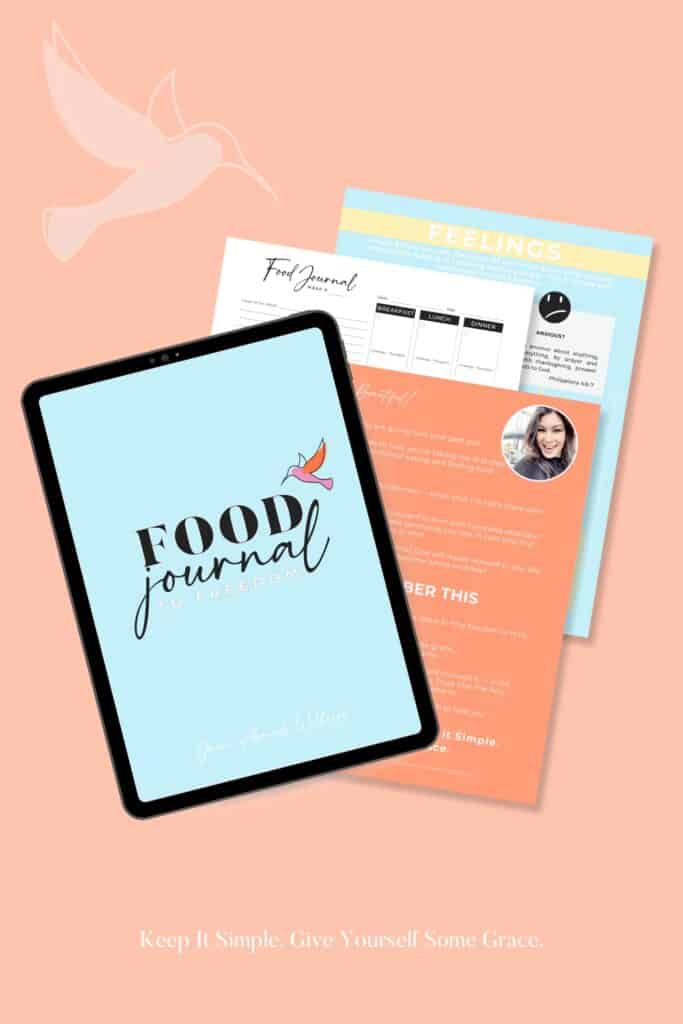
What are the 6 symptoms of an emotional eater?
If you find yourself overeating or eating comfort foods more than usual — even when you’re not hungry — you may be an emotional eater.
While emotional eating is a common and natural response, it can become a concern if it starts impacting your day-to-day life.
Emotional Eating Symptoms
Some of the signs of emotional eating are…
- You’re eating because you’re upset — not because you’re physically hungry.
- You can’t stop eating — even when you’re full.
- You reach for food to distract yourself when you’re bored.
- You often use food as a reward.
- You often use food to cope with uncomfortable emotions.
- You feel guilty or ashamed after eating — especially if you struggle with body image.
Do any of these resonate with you?
#6 — stirred something in my heart.
It all boils down to this…
From way back when we were just impressionable kids, society — friends — a family member — and even strangers on social media — influence what we feel and how we feel about ourselves. It’s like we’ve been programmed to measure our worth based on what we see in the mirror or on a screen.
It’s time to change the narrative and retrain your mind!
But first, you need to learn how to tell the difference between your physical and emotional needs.
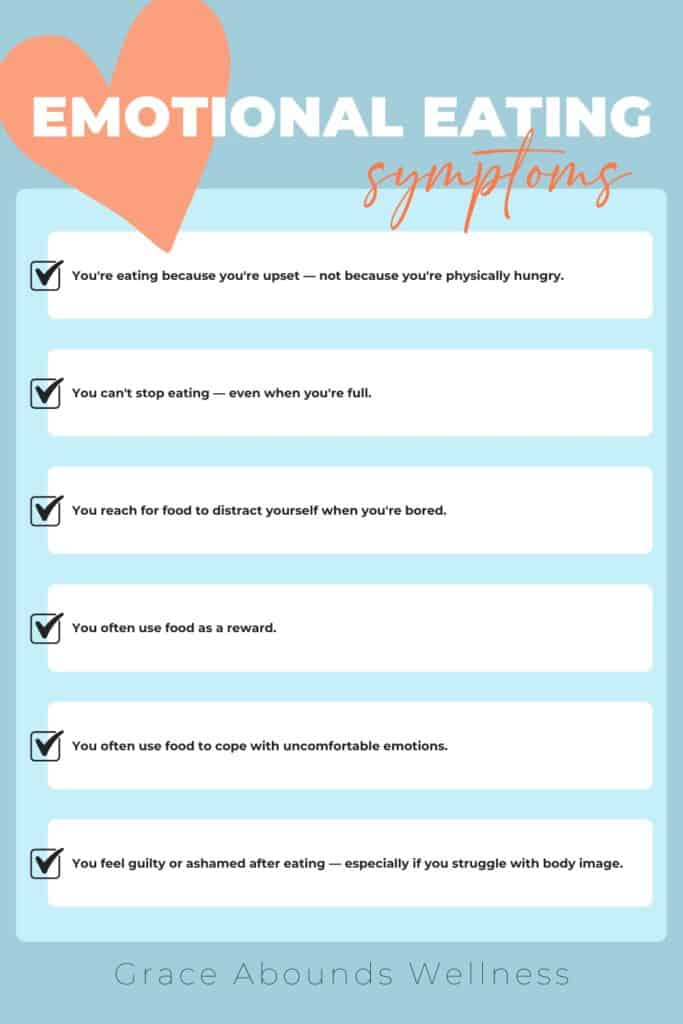
Understanding Emotional vs. Physical Hunger
Emotional Hunger
Hits You Fast: Emotional hunger can hit you out of nowhere and it demands urgent attention. It’s when you find yourself craving specific comfort foods, like a big bowl of ice cream or a whole bag of chips. This usually happens when you’re dealing with strong emotions, feeling down, or stressed.
Wants Specific Treats: You’re not just hungry (you feel hangry) — you need that chocolate bar or those fries — and nothing else will do.
Doesn’t Care if You’re Full: Even if you’re physically full, emotional hunger pushes you to keep snacking. It’s like no amount of food is enough.
Comes with Feelings: Emotional hunger usually has an emotional connection to things like boredom, loneliness, or stress and often leaves you feeling guilty or regretful afterward.
Which example of emotional eating sounds like you?
- Reaching for ice cream after a stressful day at work — using comfort food to soothe feelings of stress or frustration.
- Eating chips non-stop while solving a difficult problem — snacking mindlessly to cope with mental stress.
- Having pizza when feeling lonely or sad — using food to fill an emotional void.
- Indulging in a big dessert after a personal achievement — celebrating with food as a reward.
- Snacking continuously during periods of boredom — eating to pass the time or alleviate monotony.
Super Helpful Resources
30-Day Digital Self-Love Journal
Physical Hunger
Creeps Up Gradually: Physical hunger doesn’t rush you. It builds slowly and can wait a bit if you’re busy. You don’t need to eat ‘this instant.’
Open to Options: You might have a food preference but you’re okay with different foods. It’s more about filling the tank than treating yourself.
Stops When You’re Full: Once you eat enough to satisfy physical hunger — you’re done. Your body lets you know (your God-given fullness cues) when it’s time to stop.
Doesn’t Cause Guilt: Eating to satisfy physical hunger doesn’t make you feel guilty because you’re simply giving your body the fuel it needs.
Next Steps…
Identify What’s Driving Your Eating Habits
Mindful Eating: Pause and think when you feel like eating. Ask yourself, “Am I really hungry, or am I trying to feed an emotion?”
Hold Off for a Moment: Next time you have an urge, try waiting about 10-15 minutes before grabbing something to eat. Physical hunger will still be there after the wait — emotional hunger tends to pass.
Listen to Your Body: Physical hunger comes with clear signals like a growling stomach or a little bit of weakness. It’s your body’s way of saying it needs fuel — not just a pick-me-up.
Track Your Eating: Keeping a food diary can be extremely revealing! Track your food intake, how much you eat, and how you feel when you reach for food.
Over time, you’ll literally SEE your emotional eating patterns jump off the pages of your food journal. This will help you identify whether your eating behaviors are linked to your emotional needs or physical hunger.
Here’s a free Emotional Eating Workbook I designed to help you with this!
Once you have identified your urges or triggers — you can start your journey to overcome emotional eating!
My Battle with Emotional Eating
In 2017, a devastating hurricane turned my world upside down. My boutique salon shut down for months — cutting off any income. To say I was struggling is an understatement. I was desperate without even realizing it. I was too caught up in survival mode. The truth is I always relied on ME. I believed that as long as Wanda was in control — everything would be alright.
6 months later, my life had transformed drastically: I sold my home, sold my business of 21 years, moved from Puerto Rico to NYC, got married, started a corporate job, and, most importantly, found myself growing closer to God through it all. Despite the excitement of these changes, a big chunk of my heart remained in Puerto Rico.
There I was, inundated with sadness, an aching heart, and turning to food for comfort. Eating a pint of ice cream every day became my routine, and I watched as it led to unhealthy weight gain. Until one day, I noticed I couldn’t go without my daily pint of ice cream — I ‘needed’ it. That was my wake-up call. I turned to God for help, and now, by His grace, I no longer run to food for comfort 🙌🏼. There are still times when I slip up and turn to ice cream to soothe my hurt. But now, I don’t dwell on these slip-ups. Instead, I embrace the endless grace of God as He gently leads me back to Him…
Want more tips on how I overcame emotional eating forever? It’s a grace-first approach that will help you too! Go here to get you started!
I hope this post on emotional eating teaches you how to identify your triggers and sets you on your way to break free from it 💝
🤗 Sharing is caring!
If this post spoke to your heart, would you share it with a solopreneur friend who might also be feeling stuck or second-guessing herself?
Text her the link. (Seriously — don’t overthink it.)
Because sharing the hope is what it’s all about.
And hey — I’d love to hear from you!
Drop a comment below and let me know if this helped or what you’d love to see me unpack next. I’m all ears, friend.

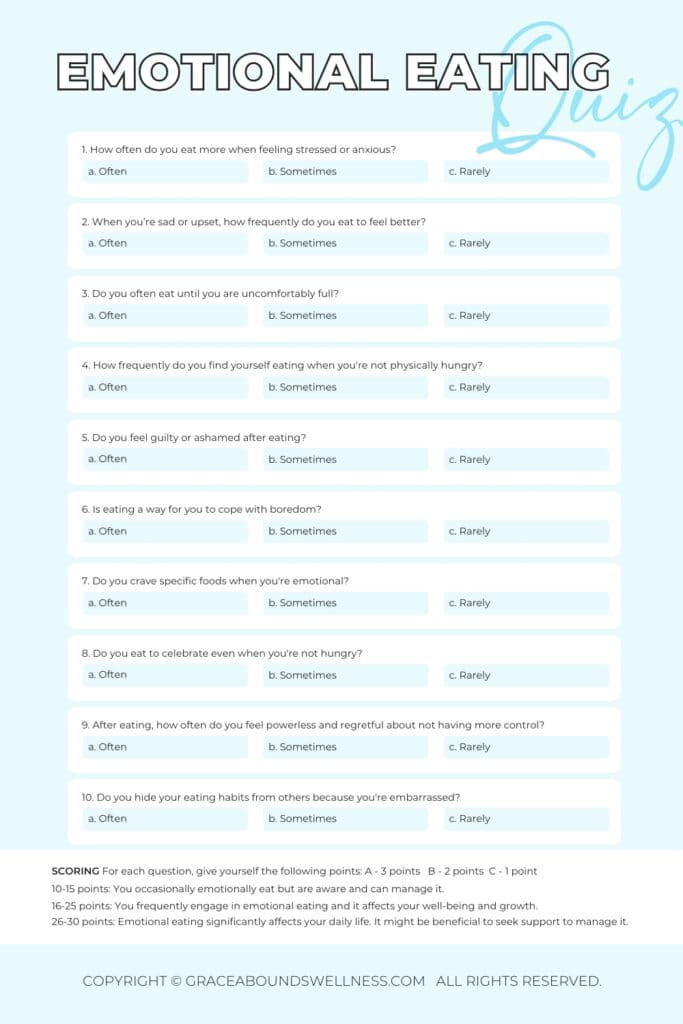
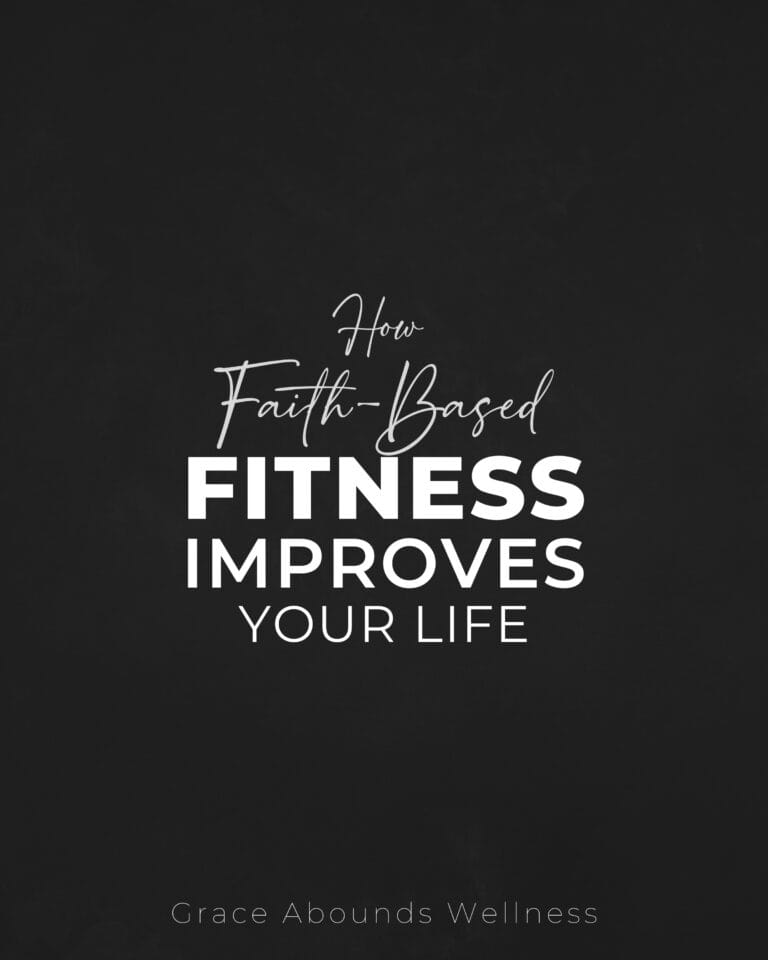
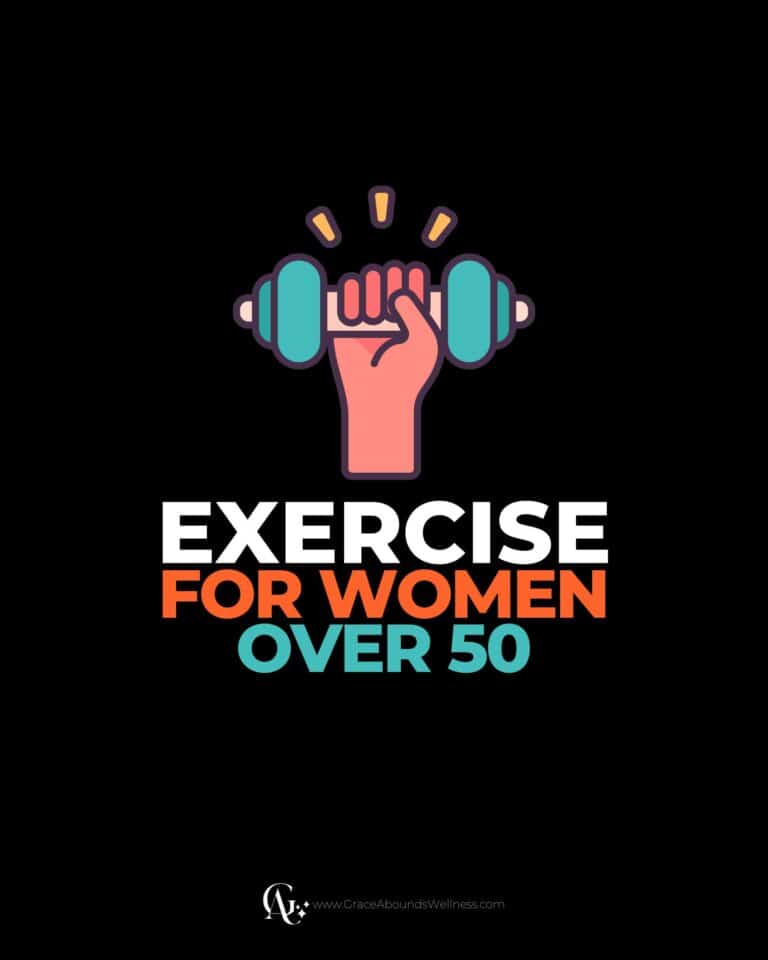
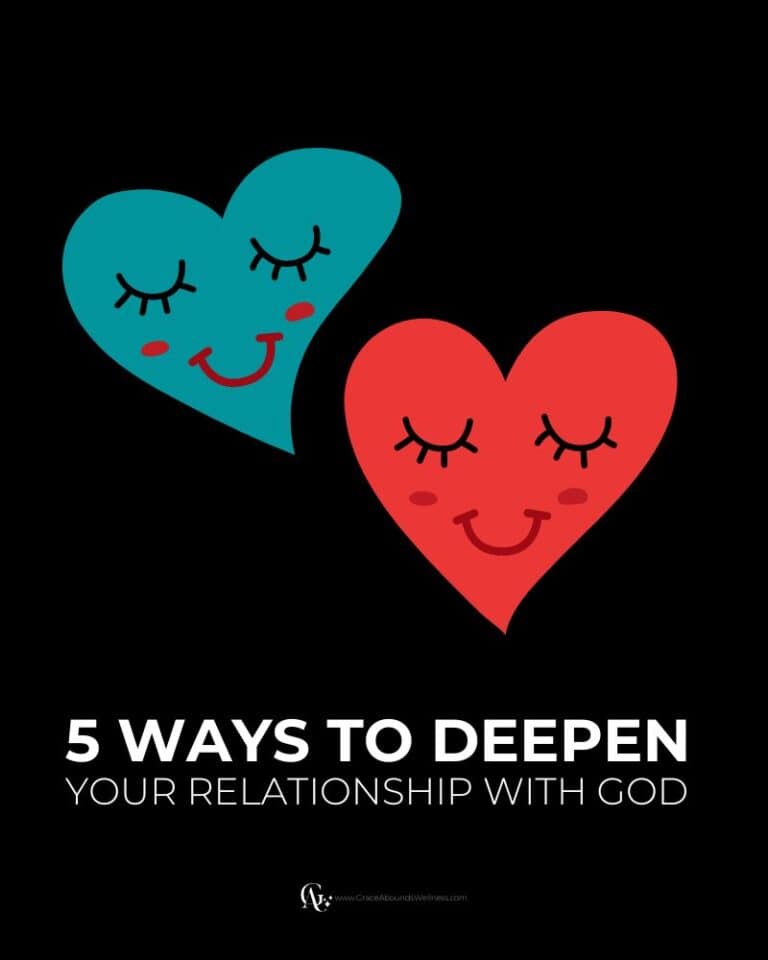
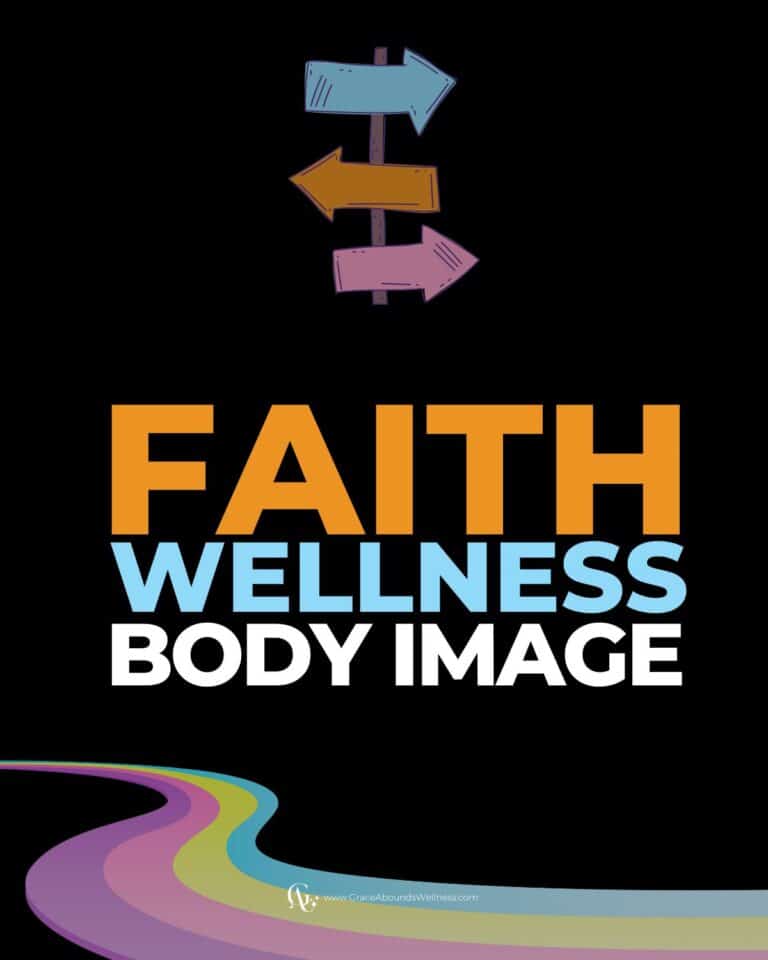
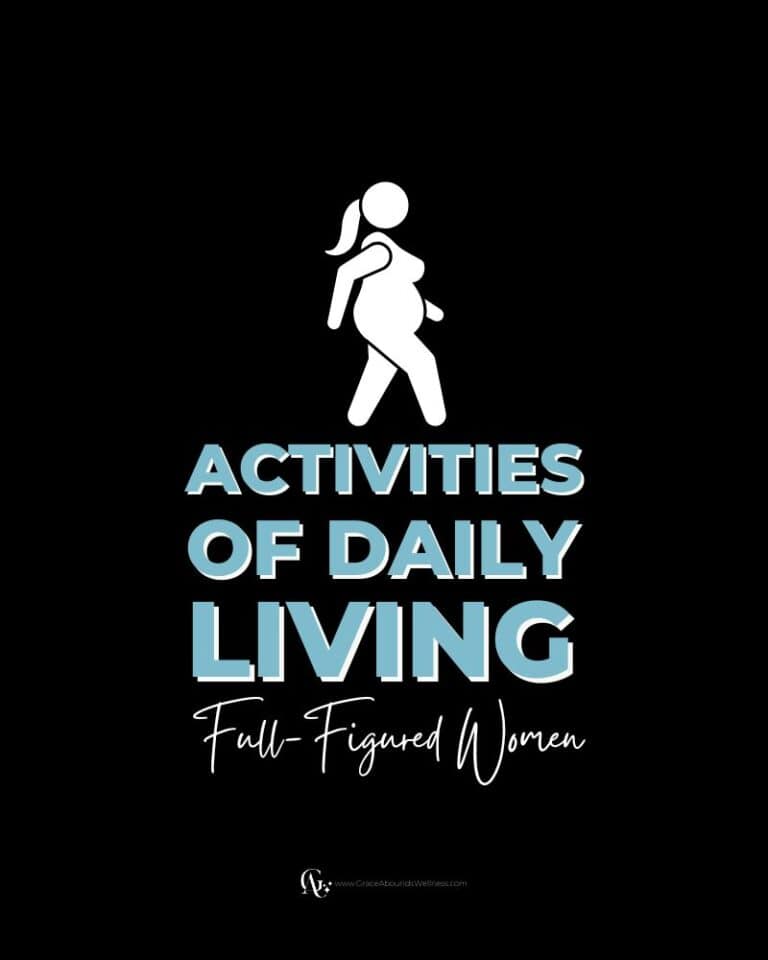
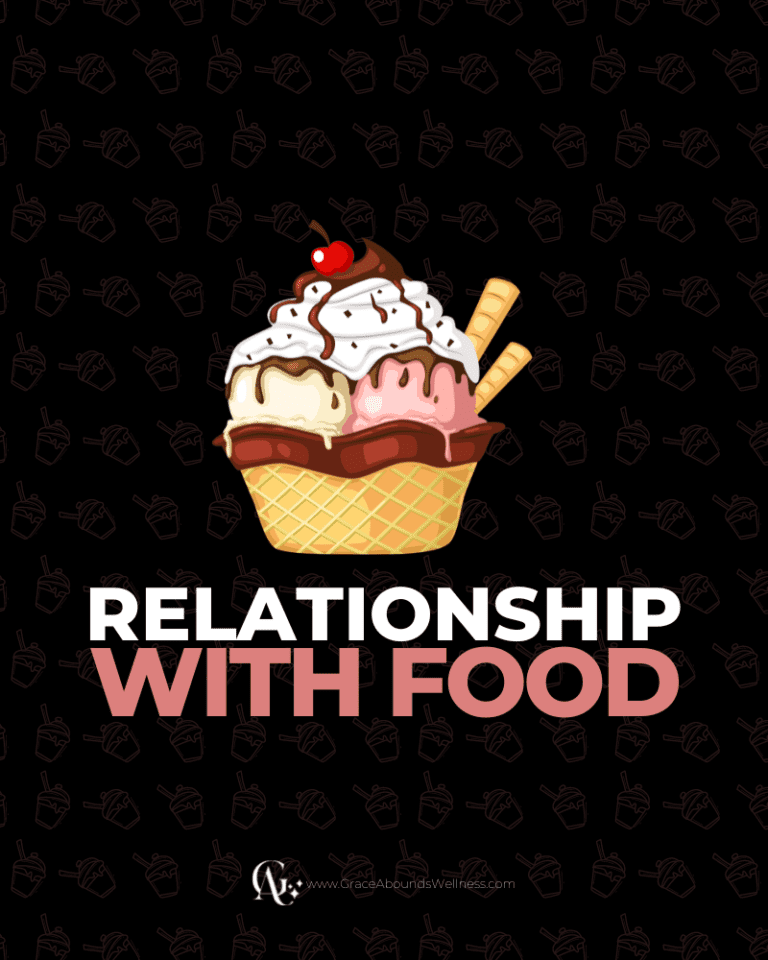
Thank you Natalie! Thanks for stopping by, and come back anytime 🙂
Just saying Hi from the FB group – loving taking a look around your blog! Keep up the GREAT writing!